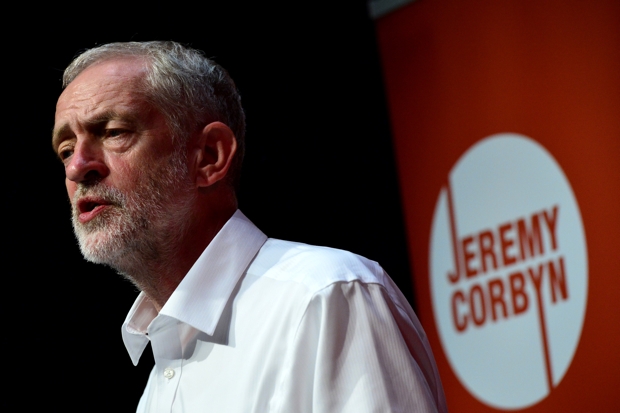If the Labour leadership has taught us anything it is that, as Kent Brockman once observed, democracy simply doesn’t work. The people’s party has asked the people, and the people are going to drive them off a cliff.
One or two journalists have speculated about whether the Tory Right could ever do something similar.
To some extent it’s a moot point because the set-up of the Conservative leadership election favours the moderates, by allowing only two candidates to go forward to the membership for voting.
But imagine, say, a situation in which three Tory wets of the Kenneth Clarke or Heseltine ilk were running for the member’s votes against a right-wing backbencher who wanted to bring back hanging (an idea as popular but as outside the Overton window as many of Corbyn’s schemes). Then introduce a system where literally anyone can come and vote for £3.
(As an aside, the £3 party fee is an interesting microcosm of the downsides of open borders migration; in order for a society to maintain a satisfactory level of trust there need to be some barriers to entry, and a period of time in which newcomers can demonstrate their commitment. Without it, trust and political legitimacy both decline, and Labour can now no longer depend on the allegiance of its members anymore than the British Government can the allegiance of its citizens after almost two decades of record immigration. If the Blairites are upset that their opponents have purposely introduced new members because they can depend on their votes, then welcome to our world.)
By definition party members are probably going to be less moderate than those running the shop because, the higher-status someone is, the more they support the status quo. Had the Tory party been democratic in 1968 then Enoch Powell could certainly have overturned Edward Heath; 300 of 412 Tory constituency associations expressed agreement with his April 20 immigration speech. Those higher up, not so much.
The Tory right is therefore hindered by the party’s structure, which favours hierarchy over democracy; but hey, it’s called the Conservative party, folks.
However, I also wonder if the Tory party is more pragmatic and less tribal than its opponents; Yvette Cooper talked this week of ‘the party she loves’, which many in Labour would empathise with. But I think if a politician at a Tory gathering used that sort of language someone in the audience would probably vomit. Despite the parties having similar average popularity and membership, only around half as many British people identify as Conservative as do Labour (roughly 15 v 30 per cent). For many Tories, the organisation is simply a convenient and necessary way of keeping Labour out of government, and of little emotional importance.
And I think the Tory fringe is also distinct from its Labour counterparts in at least understanding how weird and unpopular they are. The Corbynites seem quite at ease with themselves, a symptom of being around people who think in a similar way, and the social validation that being on the left makes you a good person. This was epitomised by Frank Cottrell Boyce’s comment in which he talked about ‘the bubble’ in which the Tories and Labour right live.
Boyce is an eminently decent Christian socialist who wants first and foremost to fight poverty; one of those people who, frankly, makes me ashamed of how mean-spirited I am. But Labour’s own polling suggests that austerity is, if not popular, then accepted; most people realise that if the state is in debt, and getting further into debt, cuts must be made.
Ironically it may be the very social validation given to left-wing ideas that brings about Labour’s downfall. Since the early 1990s the Conservatives have been made aware that their party is at risk of splits and that most of the public intensely dislike them. This is bound to install some discipline and intellectual rigor; yet the division between the different wings of the Labour Party is vast in contrast. Imagine a scenario where the heir-designate of the Tories wanted the last leader to win an election to be put on trial for war crimes.
I feel sorry for the Blairites and don’t welcome the party going off a cliff; a Conservative government is in my view the least-worst option, but it’s healthy for those in power to have a strong opposition, and Labour under Corbyn would be a shambles, more a GLC nostalgia night than a counterweight to the Tories. George Osborne must be sitting in his library right now, stroking a white cat and cackling.







Comments